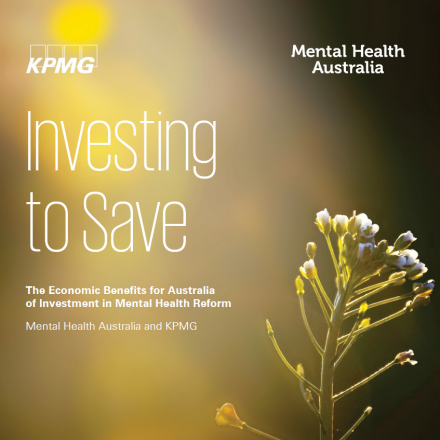CEO Update - How urgent are the important things?
How urgent are the important things?
Former U.S. President Dwight D. Eisenhower, once said: “I have two kinds of problems: the urgent and the important. The urgent are not important, and the important are never urgent.” The “Eisenhower Principle” is said to be how he organized his workload and priorities.
And at Mental Health Australia it is a principle we look at regularly. One we looked at last week when our Board met for a strategic planning exercise.
Put simply, with our limited resources, addressing important priorities limits the amount of urgent issues that we can take on. How do we address important, long term trends when so many urgent issues arise each day?
So what does this mean for Mental Health Australia? What is our strategic focus? What are our priorities? What is important?
At the heart is our core work of policy development and advocacy for our members.
Our members represent the vast array of specific clinical and community interests in the mental health sector. Our service to them is to be a conduit and communicate with government on areas of emerging policy, and policy design. As we provide this service, our members can be confident that the lessons from the important services they provide, especially those at the front line working directly with consumers and carers, are being delivered directly to governments.
This has seen Mental Health Australia play a significant role in system design and interfaces in recent years, in areas as diverse as the NDIS, Primary Health Networks, and the Digital Mental Health Gateway. In the years ahead, we hope to secure additional resources to extend our work in these areas which will allow greater engagement with the sector at a time of significant change.
But Australia is replete with policy advice on mental health. If we are to achieve lasting reform we also need to work on the detailed implementation of those policies, and on securing the long term investment that will be required for success. In the year ahead, this will be one of our greatest challenges.
So where is our planning taking us? We need the long term reform and investment required to put mental health on a par with other areas of health. We need to work hard on the detailed, painstaking work, of smoothing the interfaces between PHNs, NDIS, clinical services, psychosocial support programs and other service offerings in a model built with consumers and carers at the centre. But we also need to ensure that Mental Health Australia has the resources it needs to deliver sustainable services to its members and to the Australian community.
With mental health so high on the public and political agenda, surely the time is right for us to secure the lasting reform that we all agree is so essential.
Warm regards
Frank




